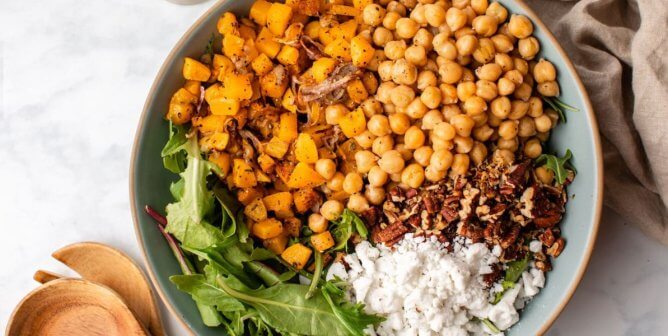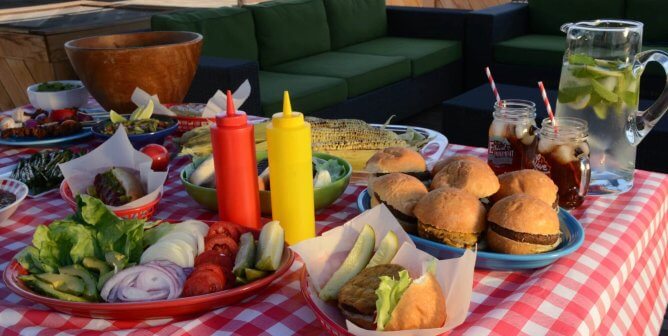Did you know that humans are natural herbivores? According to renowned anthropologist Dr. Richard Leakey, we lack the large canine teeth required for tearing flesh or hide. We can embrace our true nature by going vegan.
Wouldn’t Animals Take Over the World?
No. Every year in the U.S., over 10 billion land animals are slaughtered for food. If everyone went vegan, the number of animals raised to be exploited or killed would greatly decrease. With less demand for meat, farmers would turn to other types of agriculture. If there were fewer animals raised for food, they could live more naturally.
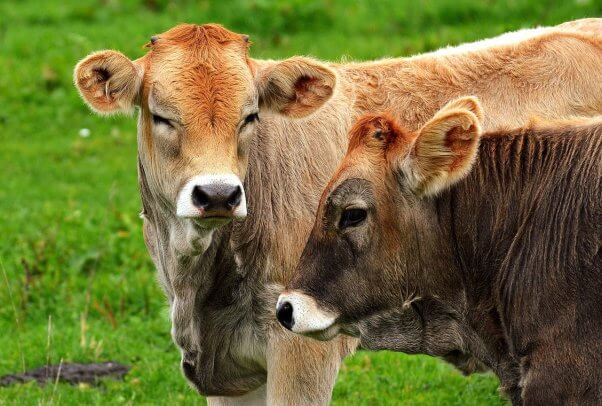
What Would Happen if Fewer Animals Were Raised for Food?
Fewer animals would be forced to endure a life of misery. On today’s farms, animals suffer in severely crowded, filthy conditions. Farmers cut off chickens’ beaks, pigs’ tails, and male animals’ testicles without any pain relief. At the end of their miserable lives, these animals are crammed into trucks, where they endure long, hellish journeys to slaughterhouses.
Today’s farms exploit animals by breeding them into this type of existence, confining them, and tormenting them before slaughtering them.
What Would the World Be Like Without Animal Agriculture?
The planet’s health would certainly improve. According to Joseph Poore from the University of Oxford, going vegan is likely the most effective way to lessen your environmental impact. Going vegan not only reduces greenhouse gas emissions but also addresses global acidification, eutrophication, land use, and water consumption. He says the benefits of ditching meat, eggs, and dairy far surpass those of reducing air travel or purchasing an electric car.
This research reveals that avoiding meat and dairy could reduce global farmland use by a remarkable 75%—and there would still be plenty of food for the world’s inhabitants. Think of all the farmland that could be used to grow food to feed humans and how much land could be restored to a more natural state if everyone went vegan
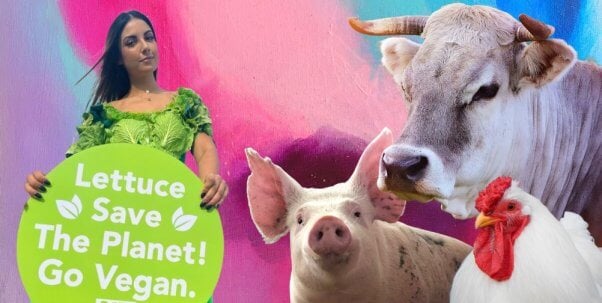
Going vegan could help curb the climate catastrophe. Even though meat and dairy provide just 18% of calories and 37% of protein for humans, producing them uses 83% of farmland and is responsible for 60% of agriculture-related greenhouse gas emissions.
Raising animals for food not only consumes a massive amount of fresh water but also generates an enormous volume of animal waste that can contaminate groundwater. Plus, if everyone went vegan, water usage would decrease by 19%, water scarcity would be eased, water quality would improve, and food-related emissions would drop by around 60%.
But What Would We Eat?
Healthy vegan foods, of course. According to the EAT-Lancet Commission on Food, Planet, Health, going vegan could prevent 11 million deaths annually, mainly by reducing the risk of heart disease, strokes, diabetes, and certain types of cancer.
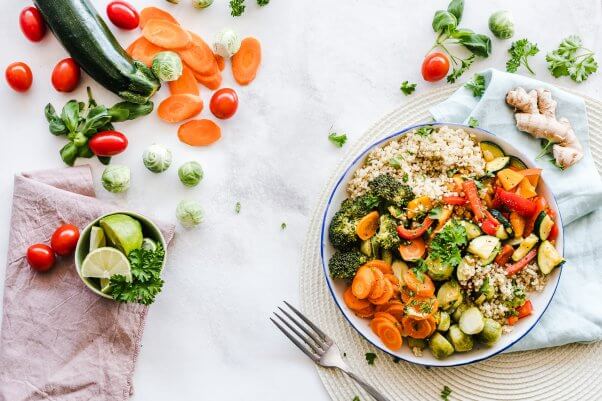
In addition, medical bills would likely decrease. The Academy of Nutrition and Dietetics states that vegans have a lower risk of death from ischemic heart disease, lower blood cholesterol levels, lower blood pressure, and lower rates of hypertension and type 2 diabetes.
If everyone were vegan, there would be a reduced risk of zoonotic diseases. Three out of every four emerging infectious diseases in humans originate in other animals and are caused, in part, by exploiting them for food, clothing, and other purposes.
Vegan eating could decrease the likelihood and severity of another pandemic. Expert bodies like the World Health Organization have long warned that pandemics are unavoidable if humans continue to eat other animals.
Going vegan could also help prevent antibiotic resistance. Research shows that factory farms’ widespread use of antibiotics can lead to antibiotic-resistant bacteria that endanger human health.
Is It Easy to Go Vegan?
Yes! Delicious vegan foods are plentiful and widely available—and exciting new products are constantly being produced. The vegan meat market will likely expand in two directions: products made with whole-food ingredients (such as beans, mushrooms, and nuts) and cultivated meat, which is animal flesh grown from cells.
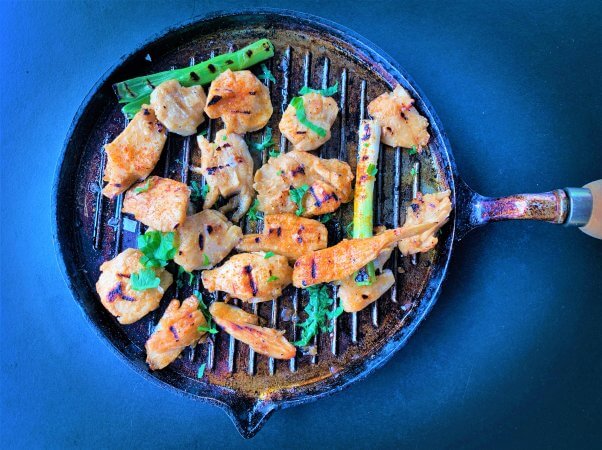
There’s also a wide variety of animal-friendly dairy options available, such as oat and other plant-based milks and vegan cheese from popular brands like Daiya. A new approach to dairy involves precision fermentation—the process of using genetically engineered yeast to “brew” all the components that make up milk. These brewed ingredients are identical to those found in cow’s milk, so the end product has the same taste and texture as dairy.
In addition, there are many egg-free upgrades on the market. You can make scrambled eggs, omelets, quiches, and other dishes without harming chickens by using tofu or products like WunderEggs Plant-Based Hard Boiled eggs and Yo Egg.
You don’t have to wait for new products to hit grocery store shelves because there are already so many delicious vegan options readily available.
There are tons of vegan recipes and products, and numerous restaurants cater to vegans, so there’s no reason to eat any animal-derived foods.
I’m Sold. How Do I Start?
Getting started is easy! Just fill out this form to receive a free copy of PETA’s vegan starter kit.




